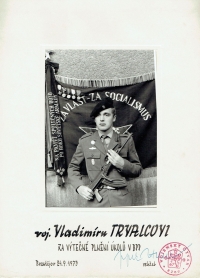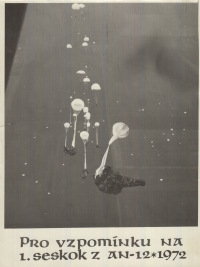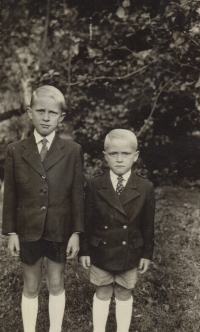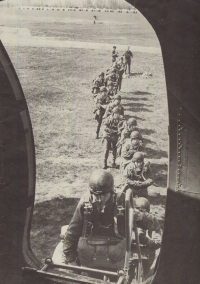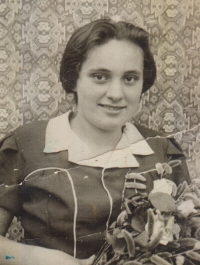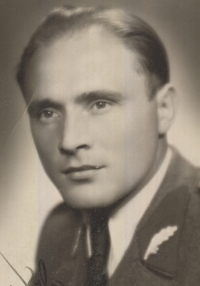My parents came from the villages in which the inhabitants were slaughtered
Download image
Vladimír Trvalec was born on 11 December 1952 in the village of Fintice near Prešov, Slovakia. His parents had a turbulent life story behind them. His mother, Margita Trvalcová (née Barborová), was an eyewitness to the events of 21 January 1945, when the Nazis burned down the villages of Ostrý Grúň and Kl´ak and murdered many of their inhabitants. Vladimír’s father Augustin first fought in the ranks of the Slovak State in Ukraine and then joined the partisans operating in the Vtáčník mountains during the Slovak National Uprising. Since people were helping these units, both villages were burned down. Vladimír grew up next to his older brother Cyril, who decided to emigrate to Canada in 1971. The regime took revenge on his younger brother. After finishing his apprenticeship as a shoemaker, Vladimír longed to study a secondary school by distance learning. He was not allowed to do so because he refused to give up keeping on correspondence with his brother Cyril during the years of normalization. During the invasion by Warsaw Pact troops in August 1968, Vladimír at the age of fifteen witnessed the arrival of Hungarian soldiers in Topolčany, where children, thanks to the fact that one of them could speak Hungarian, were talking to the occupiers and asked them why they were there. Vladimír Trvalec worked as a worker at the ZDA Partizánske [shoemaking] company until 1993. Then he was promoted, but during privatisation the rubber department where he worked at the time was dissolved. During the high unemployment rate times in Slovakia after 2000, Vladimír Trvalec was unemployed for three years. Together with his wife Věra they raised two daughters, Daniela and Ivana. Vladimír Trvalec was living in Partizánske, Slovakia in 2022.
